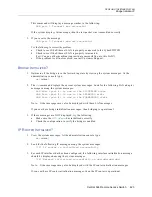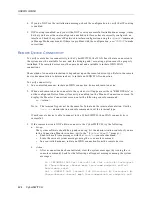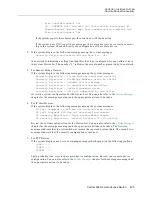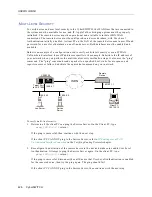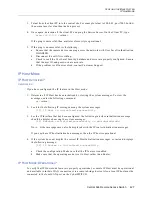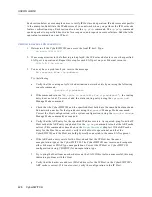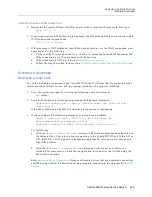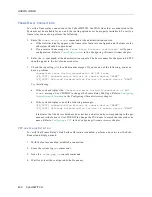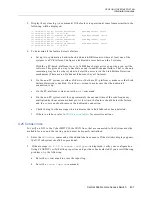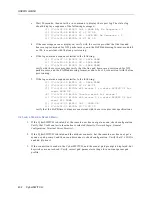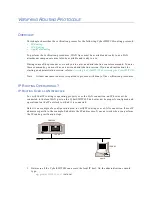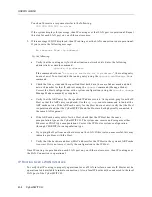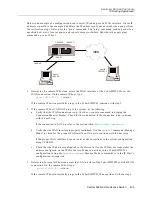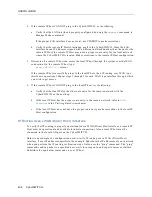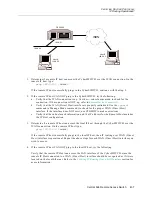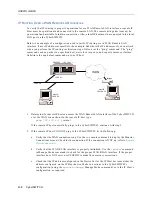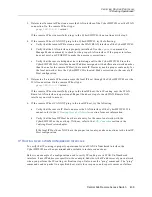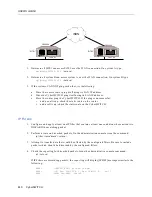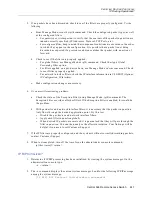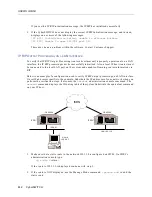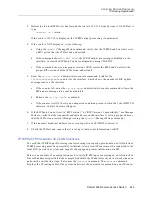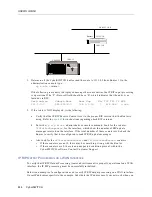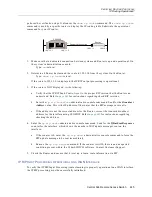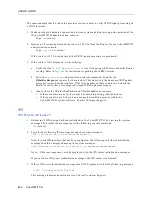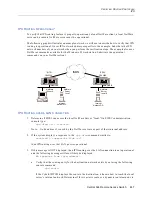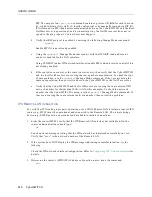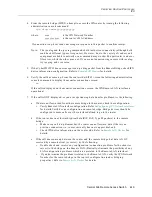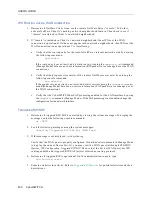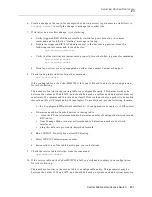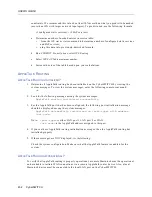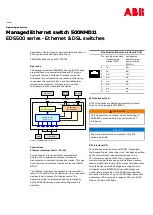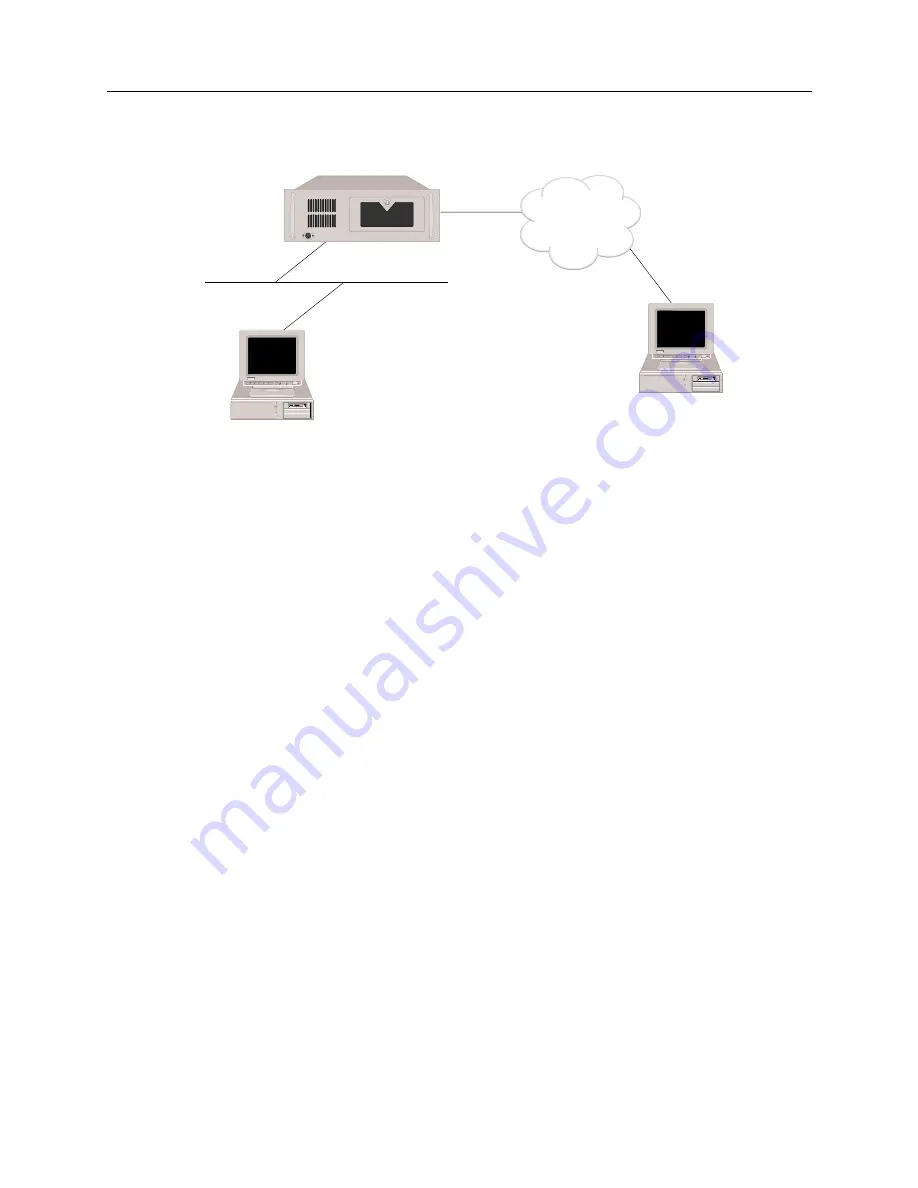
Central Site Remote Access Switch 437
V
ERIFYING
R
OUTING
P
ROTOCOLS
IP Routing Operational?
1.
Determine if a remote IP host can access the CyberSWITCH over the WAN connection. On the
remote IP host type:
ping 100.0.0.1
<return>
If the remote IP host successfully pings to the CyberSWITCH, continue with the step 3.
2.
If the remote IP host CANNOT ping to the CyberSWITCH, try the following:
a.
Verify that the WAN connection is up. Use the
mc
console command to check for the
connection. If the connection is NOT up, refer to
Remote Device Connectivity
.
b.
Verify that the WAN (Direct Host) interface is properly initialized. Use the
ipnetif
command (a Manage Mode command) to check for the proper WAN (Direct Host)
interface. If the interface does NOT exist, use CFGEDIT to make corrections
c.
Verify that the subnet mask information and the IP address for the Remote Host matches
the IP Host configuration.
3.
Determine if a remote IP host can access the local IP host through the CyberSWITCH over the
WAN connection. On the remote IP host type:
ping 100.0.0.2
<return>
If the remote IP host successfully pings to the local IP host, then IP routing over WAN (Direct
Host) interface is operational. Repeat the above steps for each WAN (Direct Host) interface you
wish to access.
4.
If the remote IP host CANNOT ping to the local IP host, try the following:
Verify that the remote IP Host can access the LAN interface of the CyberSWITCH, since the
remote IP Host connected to a WAN (Direct Host) interface should be recognized as if it were
located on the local Ethernet. Refer to the
Verifying IP Routing Over a LAN Interface
section for
more information.
100.0.0.1
100.0.0.0
Host A
100.0.0.2
Host B
100.0.0.3
ISDN
CSX5500

